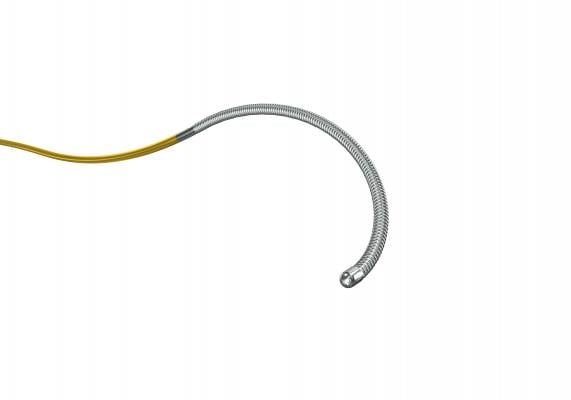
September 15, 2014 — St. Jude Medical Inc. announced primary outcome two-year data from the FAME 2 clinical trial, which demonstrated sustained superiority with FFR-guided PCI using St. Jude Medical PressureWire technology in patients with stable coronary artery disease (CAD) compared to standard medical therapy alone.
The data were published online in The New England Journal of Medicine (NEJM) and presented during a hot line late-breaking session at the European Society of Cardiology Congress 2014.
The results of FAME 2 show patients with stable CAD who received FFR-guided PCI using drug-eluting stents and medical therapy (PCI+MT) had reduced rates of death, myocardial infarction (MI) or urgent revascularization compared to patients who received medical therapy (MT) alone. In particular, in patients who had at least one significant coronary blockage with an FFR value ?0.80, FFR-guided PCI+MT reduced urgent revascularization by 77 percent compared to medical therapy alone.
“As physicians, we’re beginning to understand the challenges of basing treatment decisions on coronary angiograms that simply do not provide the full battery of information needed to properly assess lesions blocking blood flow to the heart,” said Dr. Bernard De Bruyne, of the OLV Clinic in Aalst, Belgium, and coordinating clinical investigator of the FAME 2 Trial. “The FAME 2 trial demonstrates that for patients with stable CAD, FFR-guided PCI is the favorable strategy as we look to improve treatment outcomes, reduce adverse health events and better assess which lesions require medical intervention.”
Specifically, the two-year data from FAME 2 shows:
- Patients who received FFR-guided PCI+MT had a significantly lower rate of death, MI or urgent revascularization than patients who received MT alone (8.1 percent vs. 19.5 percent).
- In a landmark analysis, patients who received FFR-guided PCI+MT had a lower rate of death or MI than patients who received MT alone after seven days (4.6 percent vs. 8.0 percent).
- Patients who received FFR-guided PCI+MT had fewer urgent revascularizations than patients who received MT alone (4.0 percent vs. 16.3 percent).
Preliminary results of the FAME 2 trial were originally presented during a hot line session at ESC 2012 and published in The New England Journal of Medicine.
Coronary artery disease is the most common form of heart disease and the leading cause of death for both women and men worldwide. Diagnosis, management and treatment of this epidemic disease continue to account for hundreds of billions of dollars in global health care expenditures annually. Results from the landmark FAME trials have continued to add to the growing body of evidence demonstrating improved outcomes and cost savings when FFR-guided therapy is used during coronary interventions.
For more information: www.sjm.com


 January 05, 2026
January 05, 2026 









